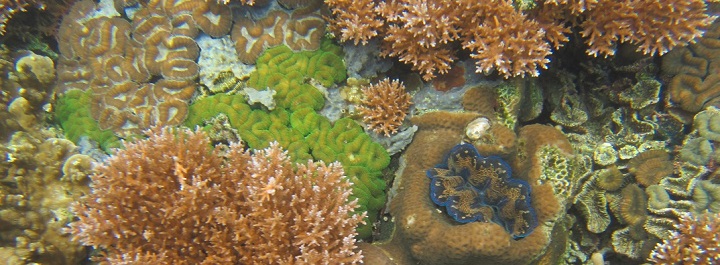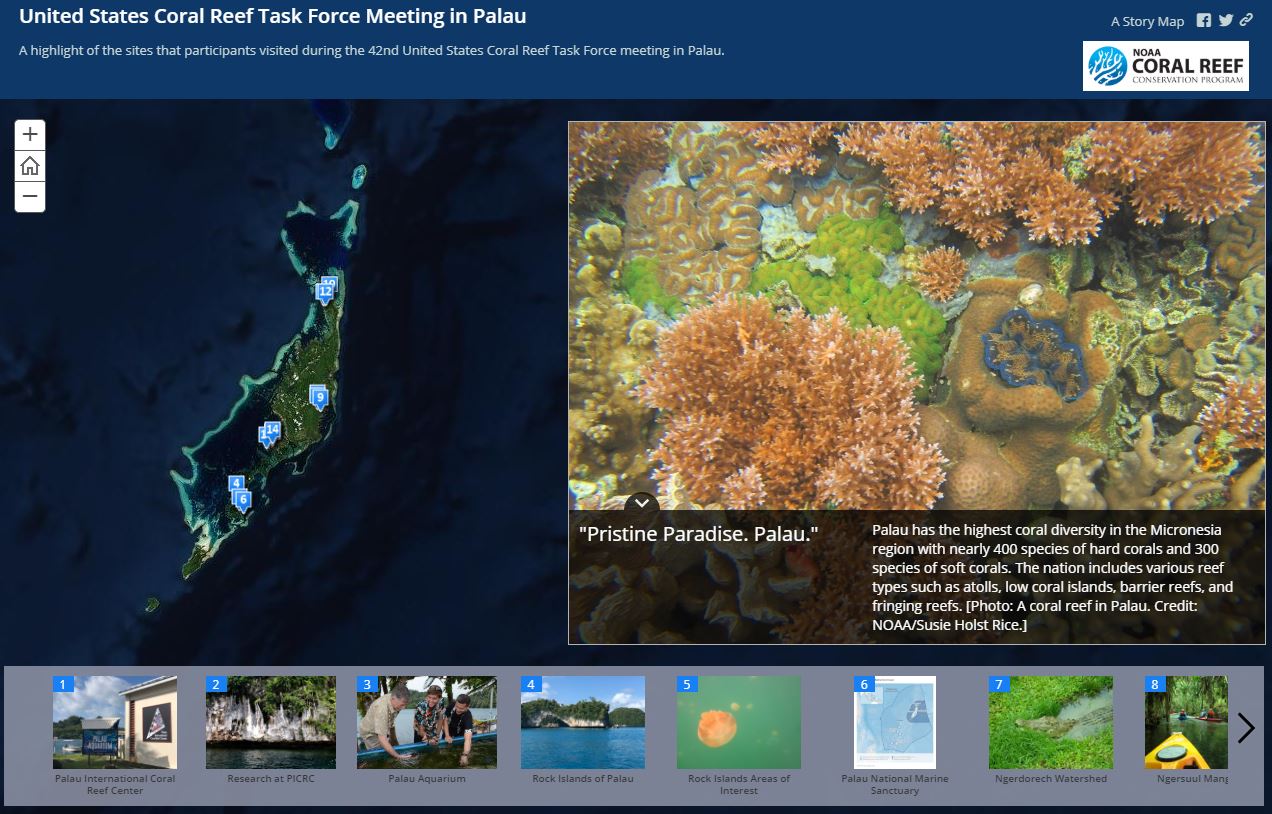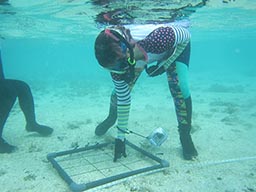- ABOUT US
- PROGRAM AREAS
- CONSERVATION APPROACH
- EDUCATION
- MULTIMEDIA
Alii Belau: Hello Palau
Every year, the U.S. Coral Reef Task Force — created by Executive Order in 1998 to coordinate coral reef conservation activities among government agencies at the national and local level — holds a meeting in a jurisdiction with coral reef ecosystems. Last month, the task force held its 42nd meeting in Koror, Palau. The Republic of Palau, located in Oceania, is a Freely Associated State, or an independent nation that has a comprehensive agreement with the United States. All three Freely Associated States — Palau, the Federated States of Micronesia, and the Republic of the Marshall Islands — are members of the task force.
Palau has many current and upcoming activities and achievements in conservation, making it an ideal and timely location for the meeting. In fact, Palau is the first nation to change its immigration laws for environmental protection. At entry, visitors sign a passport pledge to act in an ecologically responsible way. In 2018, Palau became the first country to impose a ban on sunscreen chemicals that studies have shown to be harmful to corals. The ban will go into effect in 2020.

Additionally, there’s the Micronesia Challenge, which is coming to an end in 2020. The challenge is a commitment by Palau, the Federated States of Micronesia, the Marshall Islands, Guam, and the Commonwealth of the Northern Mariana Islands to effectively preserve at least 30 percent of nearshore marine resources and 20 percent of terrestrial resources across Micronesia. New targets will be developed for completion by 2030.
Finally, the Our Oceans conference will be held in Palau in 2020. The conference focuses on developing commitments and taking actions to maintain the sustainability of the oceans.
Topics discussed during the recent task force meeting included the use of U.S. Geological Survey science to understand coral reefs, an update on stony coral tissue loss disease, a coral bleaching report, and a report on how NOAA plans to utilize the results of the National Academies study on coral interventions. Local organizations presented on fisheries issues and management; land use change and watersheds; education programs and capacity building; the Protected Areas Network; the Micronesia Challenge; and the Palau National Marine Sanctuary.
Read through the following story map to learn about the sites that meeting participants explored and how Palau is working to preserve its coral reef ecosystems.

The next U.S. Coral Reef Task Force meeting is tentatively scheduled for February 2020 in Washington, DC.
For more information on the U.S. Coral Reef Task Force, visit https://www.coralreef.gov/.
About Us

The NOAA Coral Reef Conservation Program was established in 2000 by the Coral Reef Conservation Act. Headquartered in Silver Spring, Maryland, the program is part of NOAA's Office for Coastal Management.

The Coral Reef Information System (CoRIS) is the program's information portal that provides access to NOAA coral reef data and products.
Work With US
U.S. Coral Reef Task Force
Funding Opportunities
Employment
Fellowship Program
Contracting Assistance
Graphic Identifier
Featured Stories Archive

Access the archive of featured stories here...
Feedback
Thank you for visiting NOAA’s Coral Reef Conservation Program online. Please take our website satisfaction survey. We welcome your ideas, comments, and feedback. Questions? Email coralreef@noaa.gov.
Stay Connected
Contact Us
NOAA’s Coral Reef Conservation Program
SSMC4, 10th Floor
1305 East West Highway
Silver Spring, MD 20910
coralreef@noaa.gov
